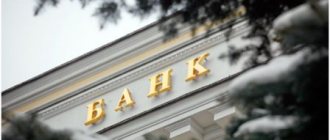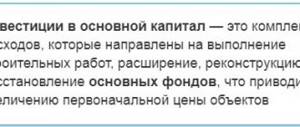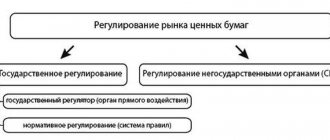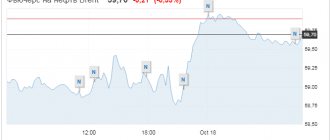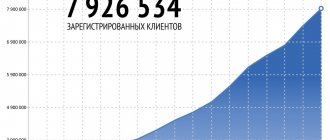Every country needs foreign investors. The influx of money from outside helps to increase production, industries, and restore industrial buildings and structures. For a foreign investor, in turn, it is important to have legal protection of their interests in a foreign country.
You can find out how to create attractive conditions for investing in a company from our article!
These types of protection can only be used by those persons whose activities on the territory of the state are legal, benefit the country’s economy and are truly investment activities.
After registering the investor and clarifying his intentions, the investor receives legal guarantees from the state. When carrying out its activities, a foreign investor must follow the requirements of the law and submit a complete written report on the implementation of the investment plan. Control is aimed at ensuring that national property and strategically important territories and objects do not become the subject of illegal actions.
Attention! The investor must enter into an agreement with the owners of the company. These are his first guarantees. Typically, investors invest their capital in promising projects, which, under the guidance of specialists, begin to generate income and a high percentage of profit for the investor himself and other shareholders.
The legal guarantee scheme protects the national economy and stimulates foreign exchange inflows. But the larger the investment, the more stringent the test of the investor's goals. Whatever the external investment, sectors of the national economy must bring benefits and benefits to the citizens of the country. Investors are screened at the application stage. A detailed business plan, development strategy and prospects must meet the high requirements for knowledge in a particular sector and in the economy. Strategic and financial plans are checked by Russian specialists. This is a guarantee that the company, after the investor leaves his post, will not end up in a debt hole.
In addition, the state issues a list of facilities that:
- You can invest, have a profit and a controlling stake.
- You can invest, make a profit, but not have controlling voting rights.
- Have profit from investments, but do not have access to the object at all.
- indirect foreign investment is allowed.
It is quite easy to freely invest in Russian commercial companies that do not have strategic importance. But a foreigner needs to remember that there are scammers in every country. Therefore, it is better to undergo full registration in the Russian Federation, obtain the right to invest and all the guarantees provided by law. It is important for Russians to remember that a foreigner, when investing his money in someone else's commercial business, does so for his own benefit. An incorrectly drafted contract can result in the company becoming the property of a foreign businessman.
The essence of the phenomenon
Investing in each specific case involves certain risks. They may be higher or lower, but there are no completely risk-free investments.
Developing countries with economies in transition and unstable political situations are traditionally considered the most risky for investors. At the same time, investment projects in Western Europe and North America have much lower risks, but also promise much lower returns.
The investor's goal is to obtain maximum profit on invested capital. The investment protection mechanism allows you to invest money even in developing countries. It provides a guarantee of the rights of investors who do not have fears that their money may be nationalized free of charge without paying compensation.
Actions of foreign and Russian investors on the securities market in Russia
Protecting the rights of investors in the securities market is complicated by the fact that Russia still does not have a clear and structured legislative framework that would be sufficient to fully regulate the work of market entities. There are also no specifically appointed specialists who dealt strictly with issues of legal support for transactions on the securities market.
That is, in order to debug the work of stock exchanges, investment companies, market entities, investors, the usual methods of legal protection of rights adopted in the practice of civil law relations are used. Many investment disputes have been brought under the auspices of arbitration courts. The rights of owners of securities, as an object of proprietary protection, can be protected by vindication proceedings, that is, securities can be reclaimed from the possession of others. But if we perceive a security as an object of law, then such a right is absolute, and a violation of the law can be carried out by an unlimited number of persons, and legal proceedings are complicated due to the variety of regulations and their complex analysis.
Thus, the protection of the rights of investors in the securities market should be carried out not just by experienced lawyers, but, first of all, by highly qualified specialists who have studied in sufficient detail the rules of law related to the scope of the securities market.
Protection of foreign investments
When an investor invests his own money in an investment project carried out in a foreign country, he must be aware that such activities must be carried out in accordance with the norms of national legislation. This circumstance in itself is associated with certain risks.
At the same time, international relations in the investment sphere have a solid legal foundation. Currently, a clear mechanism has been developed to guarantee the legitimate interests of a foreign investor. Moreover, as a general rule, ratified norms of international legislation have primacy over national laws.
When foreign investment activity was just in its infancy, the issue of legal and financial guarantees was first resolved. Naturally, every capital owner was interested in a reliable, universal and working system for protecting their own rights.
Insurance as a way of protection
Investment protection is based on a system of insurance of invested capital. The existing mechanism assumes a two-level system:
- insurance within the national insurance system owned by the country in which the investment is made;
- insurance in the international insurance system.
International investment insurance is a rather complex and formalized procedure. Such financial legal relations between foreign entities are usually regulated through bilateral agreements, which are concluded at the level of the national governments of the interested states.
Currently, unified international insurance laws have not been developed. This is due to the huge number of features contained in national legal systems. Their collision generates a large number of collisions.
At the same time, international investment protection agreements are based on the core principle of the rule of law. In a situation where the state that has accepted foreign investments violates the concluded agreement, international arbitration comes into play.
Foreign investment insurance is administered by the International Investment Guarantee Agency (MIGA).
package for you
From the list of the president’s instructions for the implementation of his message to the Federal Assembly, it follows that the State Duma is recommended to adopt a package of bills by April 30. Now the package of bills is being considered in the second reading; in the first reading, it was adopted by the State Duma on December 10.
The package of bills involves stabilizing a number of tariff, customs and tax conditions for investors who will enter into special protection agreements with the state. The SZPK mechanism should launch investment projects worth approximately 33 trillion rubles - this amount was announced by State Duma Chairman Vyacheslav Volodin in mid-January. According to the Ministry of Finance, this is approximately the amount of funds in the accounts of Russian businesses that are not involved in the economy in any way.
The current version of the documents provides for two modes of investment protection. The first (general, it can be considered a kind of “unconditional agreement” between the state and all large businesses at once) is a three-year moratorium on changing any rules that could worsen the conditions for investment activity.
The second mode - individual - is already focused on large investment projects. Depending on the size of the investment, it guarantees the invariability of tax conditions (for income tax, property tax, transport and land taxes, payment deadlines and the procedure for VAT refund) for a period of 6 to 20 years. In addition, the conditions for technical regulation, licensing, land use and territory development can be fixed for three years. It is understood that if the regulation changes during the validity of the SZPK and the investment project suffers losses as a result, the investor will receive compensation from budget money.
The package of bills will ensure the consistency of a number of tariff, customs and tax requirements for investors
For individual projects, the SZPK provides for a “threshold” approach. Thus, a business planning to invest in projects in the field of healthcare, education, culture, physical culture and sports must invest at least 250 million rubles, and the total project budget must be at least a billion rubles. In projects in industry, agriculture and the digital economy, you will need to invest from one and a half billion rubles of your own investments (the total project budget is at least 7 billion rubles). For other sectors of the economy, the entry threshold is planned to be even higher - own investments of at least 5 billion rubles (total budget - at least 25 billion rubles).
The SZPK regime will not apply to projects related to oil and gas production, alcohol and tobacco production, gambling, as well as banking and other financial activities.
The legislation in force today in the field of investment was formed in the 1990s or at the end of the Soviet period and no longer meets development goals, Volodin said earlier. The rate of economic growth is insufficient, the Chairman of the State Duma admitted.
The May presidential decree sets the goal of achieving Russia's entry into the top 5 largest economies by 2024 and ensuring growth rates above the world (that is, at least above 3 percent). In its basic forecast, the Russian Ministry of Economic Development expects economic growth in 2021 to be 1.7 percent, postponing a more significant acceleration for the next two years (3.1-3.2 percent).
The proposed version of the investment code is essentially another way to increase the level of investment. According to the plan approved by the government, by 2024 they should amount to 25 percent of GDP (in 2021 it was 20.6 percent). Former head of the Ministry of Economic Development Maxim Oreshkin said that achieving this level is possible subject to the growth of lending, investment of pension savings and reduction of capital outflow.
The current investment legislation was formed in the 1990s or at the end of the Soviet period and no longer meets development objectives
Volodin also stated the importance of implementing as many projects as possible in the regions on public-private partnership terms. “We believe that this can be achieved using the funds that today the regions must return to the federal budget. And they suggested that the government and the Ministry of Finance make credits to those regions that would invest these funds in infrastructure, roads, water, gas, electricity, connecting this infrastructure to enterprises that could be created by business in the regions. These include jobs, and additional contributions to the budget,” Volodin said.
Finance Minister Anton Siluanov also admitted that the SZPK could affect not only government regulatory decisions, but also decisions of the Bank of Russia (we are talking about large bank investments, primarily in high-tech projects).
At the same time, Volodin pointed out that the package of bills on the SZPK in its current form needs to be finalized. Deputy Finance Minister Andrei Ivanov told reporters at the end of December that the department was discussing the idea of abandoning restrictions on the total volume of the project budget, leaving only the threshold for its own investments.
It is possible that in the future the threshold values for own investments will also be lowered - this, according to Ivanov, will depend on the adaptation of the risk management decision-making system to the conclusion of agreements in various sectors of the economy.
Russian reality
Investment activity on the territory of Russia must be carried out in accordance with the norms of the federal law “On investment activity in the Russian Federation, carried out in the form of capital investments.” Among other provisions, this regulatory document defines the current investment protection mechanism.
At the same time, international agreements concluded by Russia are harmoniously implemented into our legal system. In other words, the provisions of these agreements in no way contradict the above-mentioned federal law. On the contrary, they are designed to complement it.
Thus, on the territory of the Russian Federation, a two-level protection of foreign capital and investments has actually been implemented. On the one hand, they are protected by the norms of national investment legislation. On the other hand, signed international agreements.
Pledges and security
Everything is standard here: you can give the investor real estate, goods, your products or raw materials, fixed assets as collateral ( if you have a “material” business, then equipment, machines or other means of production
).
apartments, cars, land, etc.) can be an excellent collateral.
).
In my practice, I have encountered situations where the objects of collateral were programs, inventions, intellectual property and “know-how” of the company ( relevant for IT businesses
).
Protection guarantees
Investment protection guarantees are specific obligations to create a security regime for invested funds.
An analysis of the national legal systems of different countries, as well as the international agreements they have signed, helps to conclude that today the legal regulation has several groups of guarantees for foreign investments. These include guarantees:
- to ensure the integrity of the investor’s property;
- on inadmissibility of discrimination;
- by constancy of financial conditions;
- to ensure the legal right to use the results of investment activities;
- which relate to the procedure for resolving disputes arising in connection with the implementation of investments.
In its activities, the Russian Federation always adheres to all its international obligations. This statement is fully realized in the example of the protection of domestic and foreign investments made in Russia.
What's guaranteed?
From an investor's perspective, guarantees can cover both cases:
- Only the initial capital involved in the investment
- Profit in addition to the initial capital.
Both of these types of guarantees are available to international investors
It is usually easier to find guarantees offered on long-term investments (5+ years), since diversification reduces the effects of market fluctuations over time. Even though short-term guaranteed investment products are harder to find, certain products are still available. These products may be called differently because the warranties on these products work differently. Short-term guaranteed products can be Value Protected Funds or With Profit Bonds, which 'freeze' profits when markets rise, or Low-Risk Funds, which invest primarily in guaranteed assets. In addition, certain guaranteed alternative investment funds with 3-year investment periods are available. These funds are often specifically designed to take advantage of certain market situations, such as low interest rates or new hedging instruments.
Structured Products
This type of investment can bring more income than the most profitable deposits and bonds. But the question of how weaker the guarantees for the protection of invested funds are, requires some clarification. Structured products include simple financial assets (deposits, shares, bonds, currencies, etc.) and consist of two parts, protective and income. They may have full, partial or conditional capital protection. The highest level of investment return guarantees are provided by structured products with full capital protection. The only significant risk in this case is the probability of default of the issuer that forms the protective (base) part of the structured product. An investor who purchased bonds of this issuer is exposed to exactly the same risk. But the yield of a structured product can be 2 or even 3 times higher than the yield of bonds, so the advantage of the former is obvious.
Conclusion: structured products are an excellent alternative to bonds and bank deposits . Conservative investors are better off choosing protective structured products with 100% capital protection and guaranteed income.
Why is there a need for defense mechanisms?
The modern Russian Federation has a rather unstable economic situation. This fact scares off foreign investors due to the fact that they are simply afraid of losing their investments.
To increase its attractiveness in their eyes, our state is developing mechanisms at the legislative level to protect their rights in order to provide investors with some kind of guarantors. This fact increases Russia’s authority both on the world stage and in the eyes of investors from other countries. They understand that if any problems arise with their money, they can go to court, and the laws will protect their rights.
